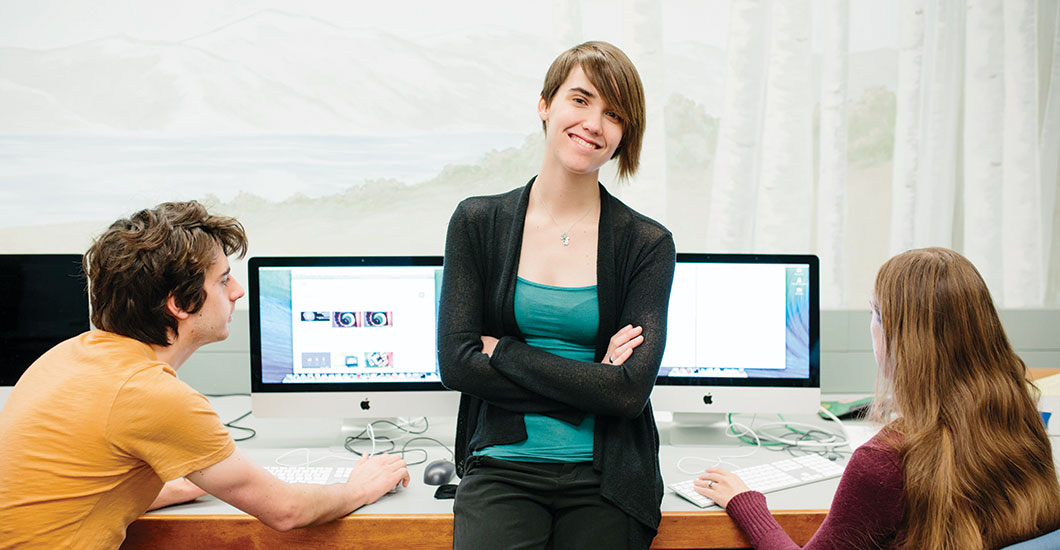College News
This is How We MOOC
Using the College’s expertise as a leader in hands-on education, Harvey Mudd faculty and students designed massive open online courses (MOOCs) aimed at strengthening computer science and physics education in the nation’s schools. Courses in computer programming (Scratch) and physics attracted 23,000 and 3,000 registered students, respectively.
The two Harvey Mudd MOOCs opened for registration on Nov. 18 and began on Feb. 2, 2015. The courses are offered free of charge via edX.org, the nonprofit online learning destination founded by MIT and Harvard.
Programming in Scratch is the first MOOC focused solely on teaching Scratch, a user-friendly programming language designed for students as young as elementary school. The course was developed by computer science Professor Colleen Lewis and aims to help teachers, students and their parents learn computer science concepts through fun and engaging videos and exercises.

How Stuff Moves is a physics course in mechanics designed to support high school or college students in their first course in calculus-based physics. Many U.S. high schools do not offer advanced physics courses such as mechanics. Professor Peter Saeta originally wanted to create an online version of his first-year Physics 24: Mechanics course in order to give students in his class who had less high school preparation in physics extra resources to help them master the material. Translating the course to a MOOC platform allows this resource to be shared broadly with both high school and college students seeking to increase their understanding of physics.
Another MOOC, The Middle Years Computer Science (MyCS) course, is an introduction to computer science course aimed at middle and high school teachers. Launched in late April 2015, MyCS provides curricular resources to help teachers offer computer science courses not currently available at their schools or to improve existing courses. Course content was adapted for middle and high school students with the help of a grant from the National Science Foundation. In the course videos, Harvey Mudd students actively demonstrate lesson plans filled with experiential learning activities and demonstrations geared for middle and high school students.
According to Elly Schofield ’13, MOOC program coordinator, “We’re also underway designing CS for All, a MOOC based on CS5 (Introduction to Computer Science), for launch in early June.”